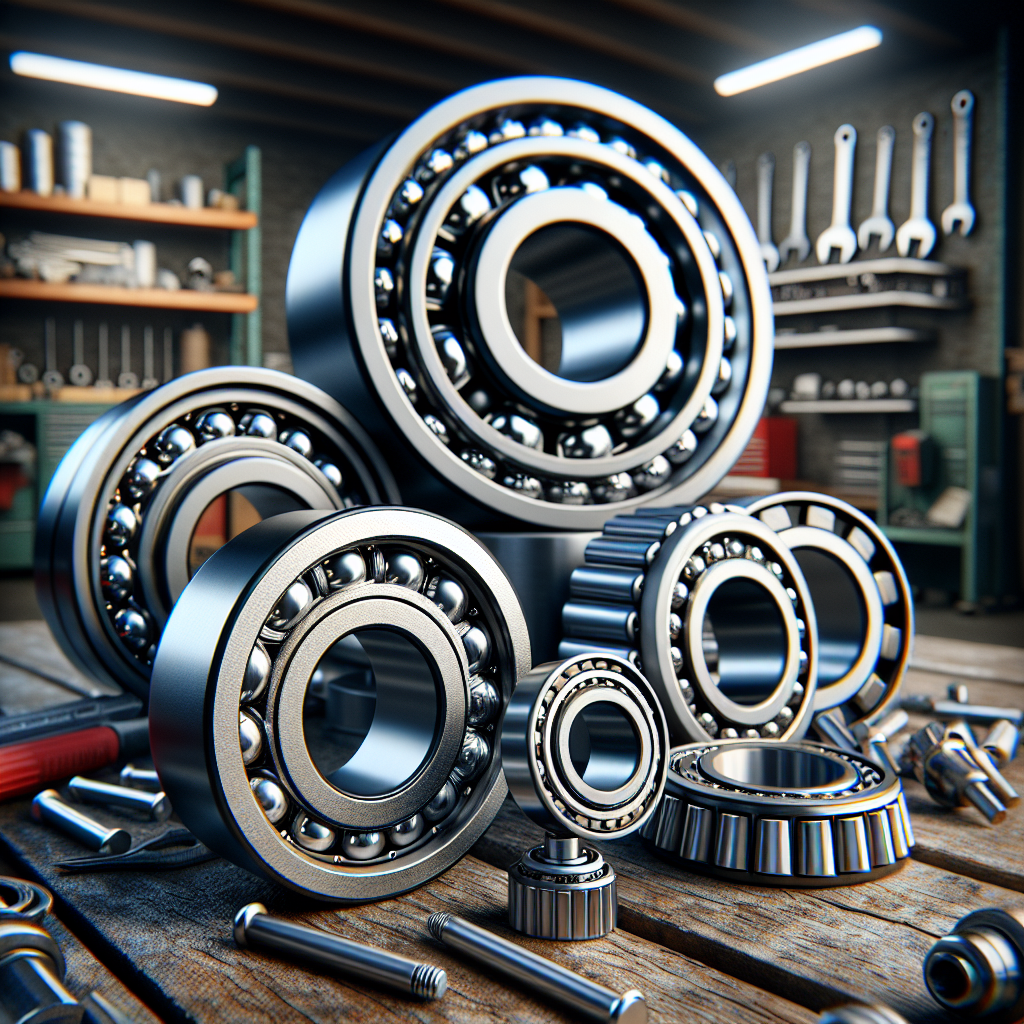When it comes to trailer maintenance, understanding the role of bearings is crucial for ensuring the longevity and safety of your trailer. Bearings are mechanical components that facilitate smooth rotation of the wheels, thereby allowing for efficient movement. They are typically situated between the hub and the axle, and their primary function is to reduce friction, enabling the wheels to turn freely.
There are several types of bearings suitable for trailers, including:
- Ball Bearings: These are the most common type, characterized by their ability to handle both radial and axial loads.
- Tapered Roller Bearings: Ideal for heavier loads, these bearings are designed to accommodate higher stresses and offer excellent durability.
- Needle Bearings: These are used in applications where space is limited, providing reliable performance in compact environments.
Maintaining your trailer bearings is fundamental for preventing costly failures on the road. Regular inspections and timely replacements can save you from dangerous situations and ensure a smoother towing experience. Furthermore, inadequate bearing maintenance can lead to overheating and potential catastrophic failure, which is why it's essential to stay proactive.
To protect your investment and enhance your trailer's performance, consider monitoring the key parameters of your trailer, including axle temperature and tire data. Tow with peace of mind, knowing that trailerwatchdog is standing guard.
Types of Bearings Suitable for Trailers
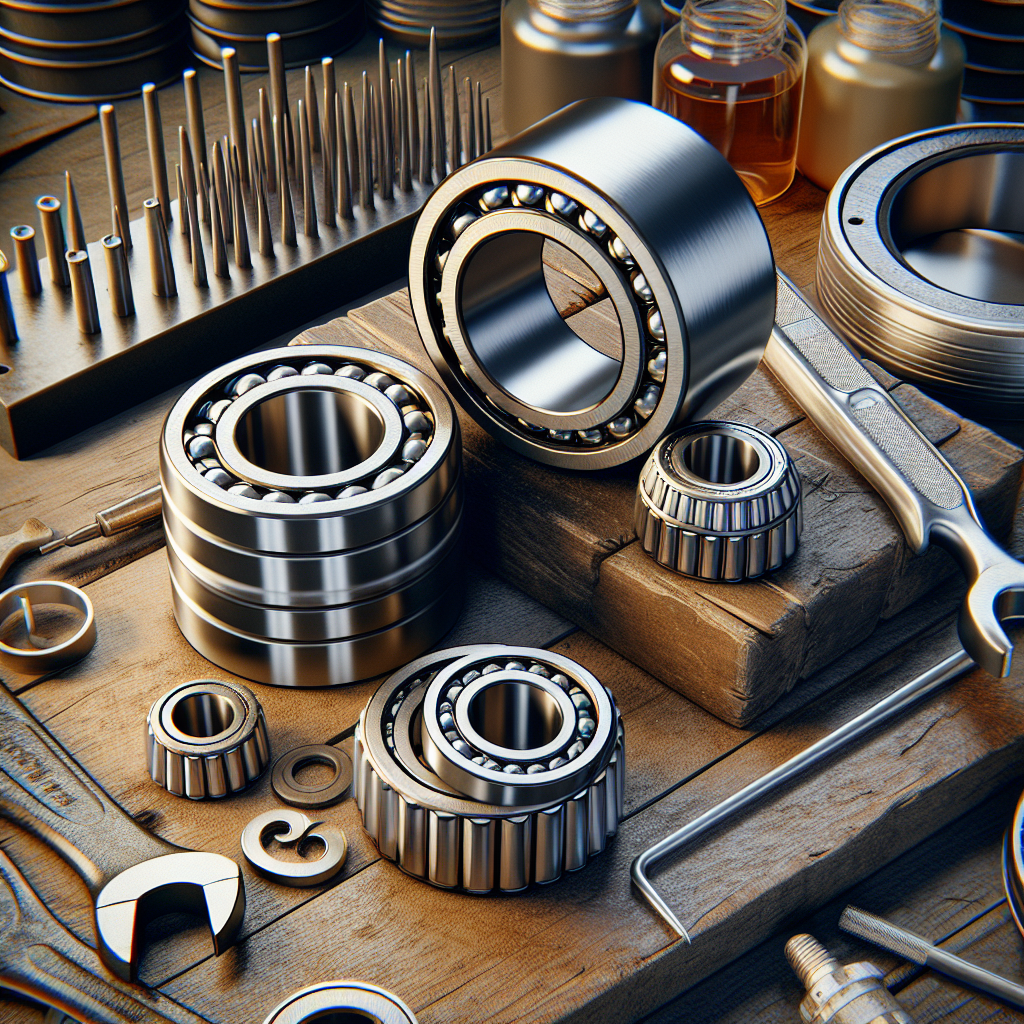
Choosing the right bearings for your trailer is essential for optimal performance and safety on the road. Different types of bearings are designed for specific applications and load capacities, making it important to understand the various options available. Here are the primary types of bearings suitable for trailers:
- Ball Bearings: These bearings consist of spheres that roll between inner and outer races, minimizing friction. They are best for light to moderate loads and are commonly found in smaller trailers.
- Tapered Roller Bearings: Engineered to handle heavy loads, tapered roller bearings feature a conical design that allows them to support both radial and axial forces. This makes them ideal for larger trailers and those frequently carrying heavy loads.
- Needle Bearings: Needle bearings utilize long, thin rollers to support loads in tight spaces. They are excellent for applications where space is limited yet require high load capacity, making them a popular choice in many trailer designs.
- Sealed Bearings: These bearings come pre-lubricated and sealed to prevent contamination from dust and moisture. They require less maintenance and are often used in environments where exposure to debris is a concern.
- Self-Aligning Bearings: Designed to accommodate misalignment between the shaft and housing, these bearings allow for smoother operation, which is particularly beneficial in trailers that may experience shifting loads.
Each bearing type has its advantages and is suited to different trailer requirements. It is crucial to assess your trailer's specific needs, load capacity, and operating conditions to select the most appropriate bearing type, ensuring a safe and efficient towing experience.
Key Factors to Consider When Choosing Bearings
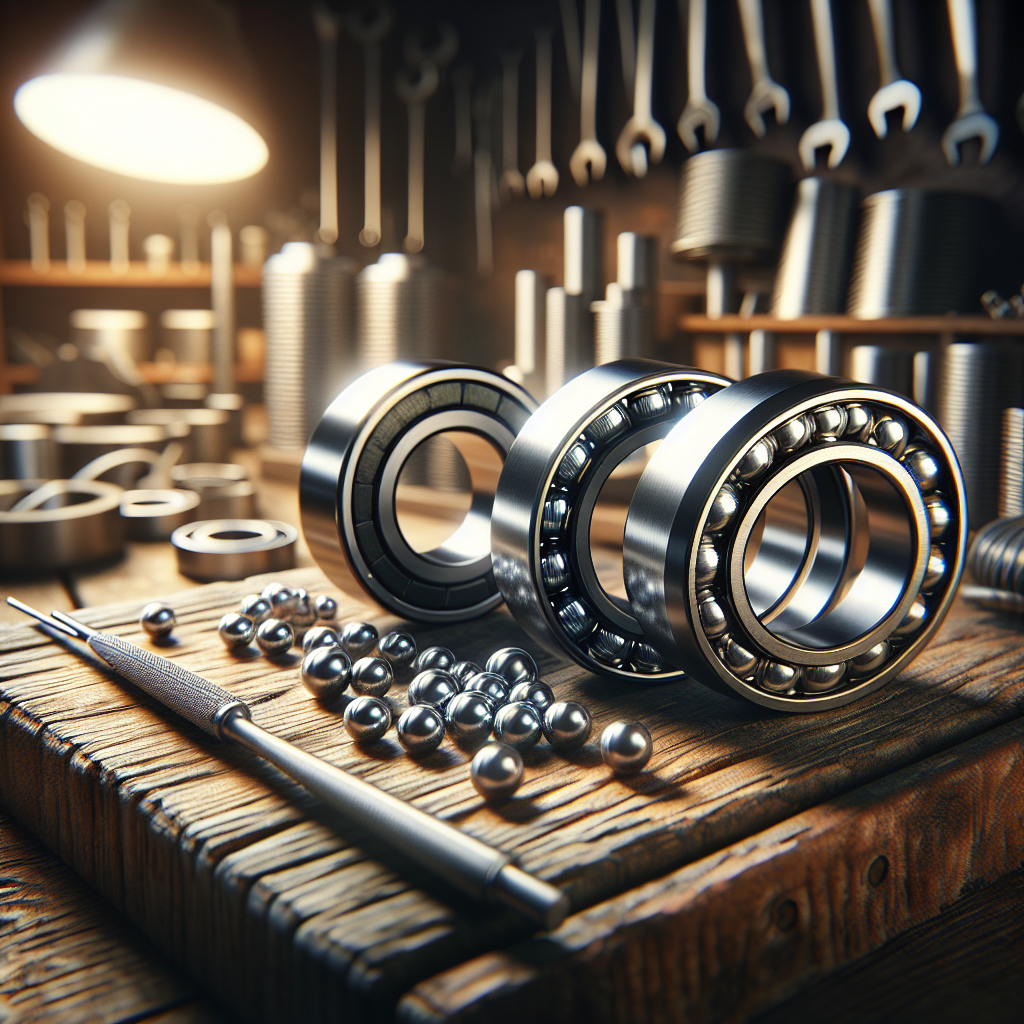
Selecting the right bearings for your trailer is not just about picking a type; several key factors must be considered to ensure you make the best choice for your specific needs. Here are the essential considerations:
- Load Capacity: Determine the maximum weight your trailer will carry. Each bearing type has a specific load rating, and selecting one that can comfortably handle your trailer's weight is crucial to prevent premature wear or failure.
- Operating Conditions: Consider where and how often you will use your trailer. Bearings exposed to harsh environments, such as saltwater or dirt roads, may require sealed or corrosion-resistant options to extend their lifespan.
- Speed: The speed at which your trailer will operate also influences bearing choice. High-speed applications typically benefit from ball bearings, while tapered roller bearings are suitable for heavy loads at lower speeds.
- Maintenance Requirements: Some bearings require regular lubrication and maintenance, while others, like sealed bearings, are designed for minimal upkeep. Evaluate how much maintenance you can realistically perform.
- Compatibility: Ensure the bearings you choose are compatible with your trailer's axle and hub design. Mismatched components can lead to performance issues and safety hazards.
By taking these factors into account, you can make an informed decision when selecting bearings for your trailer, enhancing its performance and safety on the road.
How to Properly Maintain Your Trailer Bearings
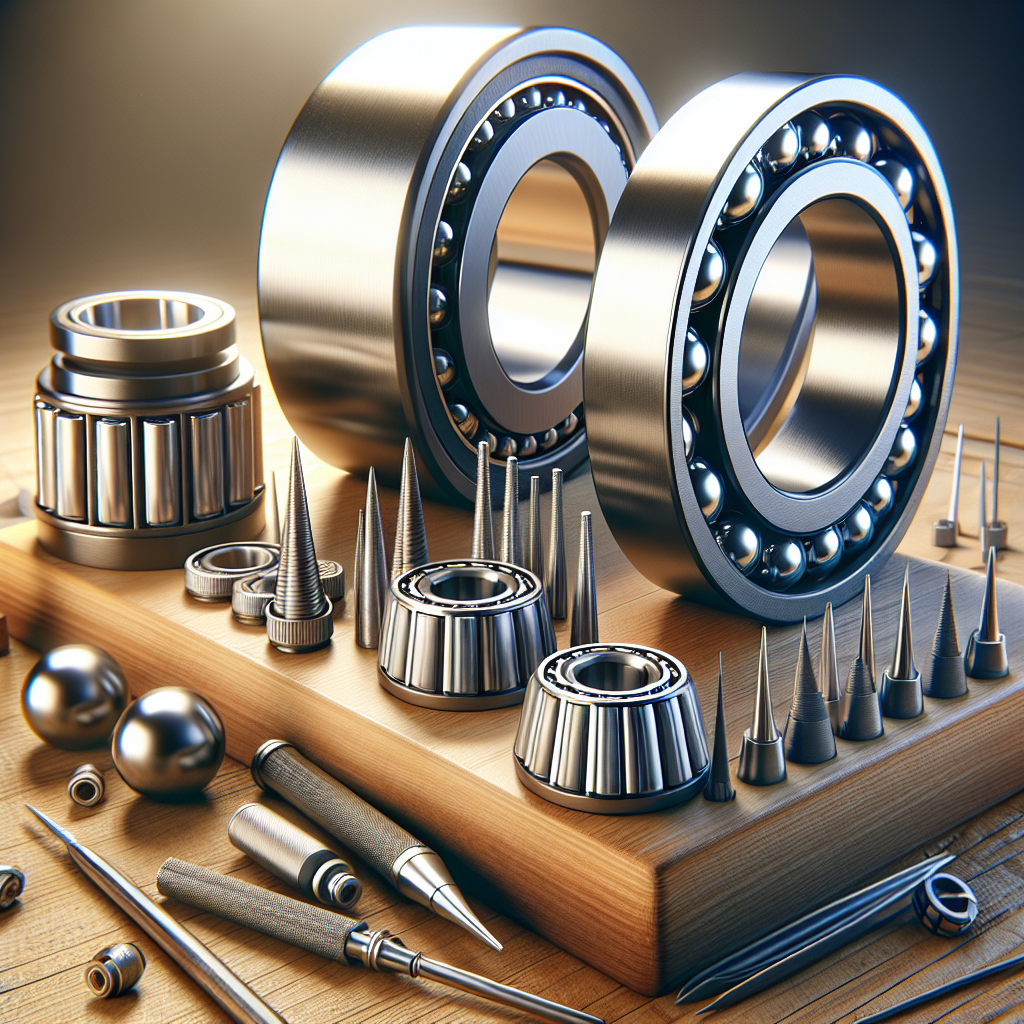
Maintaining your trailer bearings is essential to ensure they function properly and last as long as possible. Proper maintenance not only enhances performance but also helps prevent costly repairs due to bearing failure. Here are some effective tips on how to properly maintain your trailer bearings:
- Regular Inspections: Periodically check your bearings for signs of wear, damage, or corrosion. Inspect the seals for any cracks or breaches that could allow dirt or moisture to enter.
- Lubrication: Ensure that your bearings are adequately lubricated. Depending on the type of bearings you have, you may need to repack them with grease or replace the lubricant at regular intervals. Always use the manufacturer-recommended lubricant for optimal performance.
- Temperature Monitoring: Be aware of the temperature of your bearings during use. Overheating can indicate insufficient lubrication or excessive load. Installing a temperature monitoring system can help detect potential issues before they escalate.
- Cleaning: Keep your bearings clean by removing any dirt or debris that may accumulate over time. Use a suitable cleaner and avoid harsh chemicals that could damage the bearing seals.
- Proper Installation: Ensure that bearings are installed correctly. Improper installation can lead to misalignment and premature failure. If you are unsure, consult a professional for assistance.
By implementing these maintenance practices, you can extend the lifespan of your trailer bearings and improve the overall safety and efficiency of your trailer.
Signs Your Trailer Bearings Need Replacement
Recognizing the signs that your trailer bearings need replacement is crucial for maintaining safety and performance. Ignoring these indicators can lead to serious issues and costly repairs. Here are some common signs that your trailer bearings may need to be replaced:
- Unusual Noises: If you hear grinding, squeaking, or rumbling noises coming from the wheel area while towing, it may indicate that the bearings are worn out or damaged. These sounds often mean that the lubrication has failed or that the bearings are misaligned.
- Excessive Heat: Overheating bearings can be a sign of inadequate lubrication or excessive load. If you notice that the wheel hub is too hot to touch after use, it’s essential to investigate further, as this could lead to bearing failure.
- Vibration: Excessive vibrations while towing could suggest that the bearings are failing. This instability can affect the handling of your trailer and may indicate that the bearings are loose or deteriorating.
- Visual Inspection: Look for signs of grease leakage or discoloration around the bearing seal. If the seals are cracked or broken, moisture can enter, leading to rust and bearing damage.
- Wheel Play: If you can move the wheel up and down or side to side with noticeable play, this could indicate that the bearings are worn out and need replacement.
Being proactive in identifying these warning signs can help you avoid unexpected breakdowns and ensure a safer towing experience. Regular maintenance and inspections are key to keeping your trailer in optimal condition.
Expert Recommendations for Trailer Bearing Brands
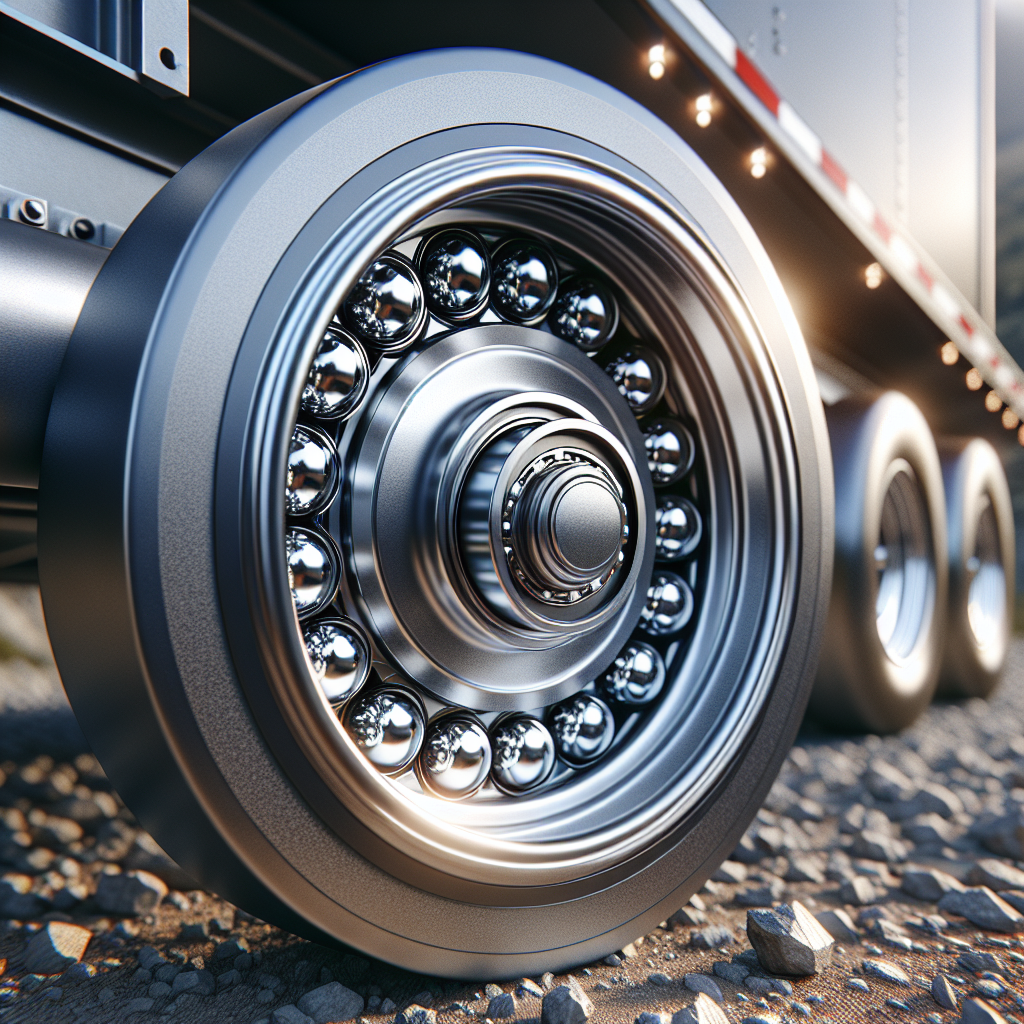
When it comes to selecting the best bearings for your trailer, expert recommendations can guide you towards reliable brands that stand the test of time. High-quality bearings are essential for ensuring smooth operation and longevity of your trailer. Here are some of the top brands that professionals often recommend:
- Timken: Known for their exceptional quality and durability, Timken bearings are designed to withstand heavy loads and harsh conditions, making them a favorite among trailer owners.
- SKF: This brand is recognized globally for its innovation and engineering excellence. SKF bearings offer superior performance and reliability, ideal for both commercial and recreational trailers.
- BCA Bearings: BCA is a trusted name that provides a wide range of trailer bearings. Their products are designed for easy installation and are built to last, making them a popular choice.
- National: National bearings are known for their precision engineering and extensive testing. They provide a range of bearings suitable for various trailer types, ensuring a good fit and performance.
- Dexter Axle: Specializing in trailer components, Dexter Axle offers high-quality bearings specifically designed for their axles, ensuring optimal compatibility and performance.
Choosing the right bearing brand can significantly impact your trailer’s performance and safety. Always consult with professionals or conduct thorough research to find the best fit for your specific trailer needs. Tow with peace of mind, knowing that trailerwatchdog is standing guard.
